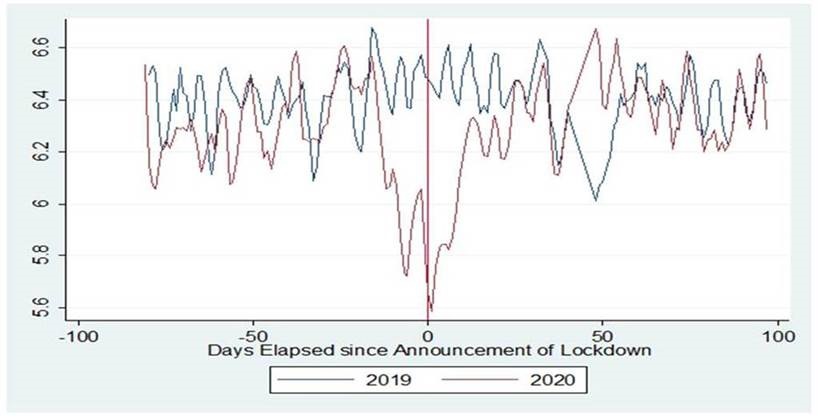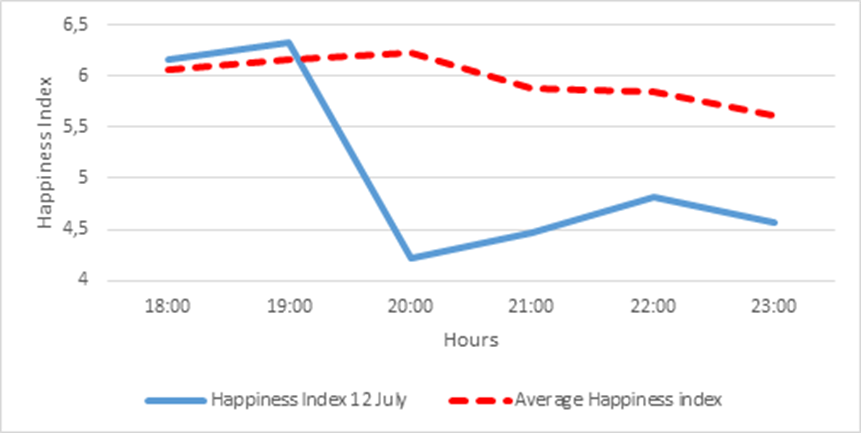- Researchers say South Africa’s happiness levels have improved since the beginning of the lockdown.
- However, the ban on the sale of alcohol led to an immediate decrease in happiness levels.
- Other factors that affect happiness include job security and financial uncertainty.
Researchers analysing South Africans’ moods say we are generally displaying higher happiness levels since the beginning of the national coronavirus lockdown, but reimposing the ban on the sale of alcohol led to an immediate decrease.
The research is being done by Gross National Happiness, which is the first index of its kind and measures the real-time sentiment of a country by analysing tweets.
Initial research had seen happiness levels increase since the beginning of the lockdown, but the reimposed ban on alcohol, the prolonged ban on tobacco products, as well as a fear of job losses and economic uncertainty, have had an averse effect on South Africans’ happiness.
On 26 March, South Africa went into lockdown. These lockdown regulations were implemented to curb the spread of Covid-19 and prepare health systems to cope with the expected increased burden of Covid-19 cases.
Though lockdowns minimise the spread of the virus, there is conclusive evidence of substantial happiness losses due to the lockdown.
In South Africa, happiness decreased from an average of 6.32 before Covid-19 to a low of 5.35 with the announcement of the lockdown regulations – a happiness loss of more than 15%.
Happiness levels recovering
The team found that as the lockdown progresses (115 days under lockdown by 20 July), people are adapting to the changed circumstances, and happiness levels are recovering, notwithstanding the lockdown regulations.
The Gross National Happiness team comprises Professor Talita Greyling of the University of Johannesburg, Dr Stephanié Rossouw of the Auckland University of Technology, in collaboration with Afstereo.
The happiness index is constructed by monitoring and extracting the tweets of South Africans, New Zealanders and Australians, and analysing the sentiment of these tweets. A sentiment score is allocated to each tweet, classifying the tweet as either negative, neutral or positive. The sentiment scores are then used in a sentiment balance algorithm to derive the Gross National Happiness (GNH). The GNH is measured on a scale of 0 to 10, with 0 being very unhappy and 10 being very happy.
See Graph 1, which compares the time period before and after lockdown in 2020 to the same time period in 2019.



The researchers found that on the upside of the lockdown, staying at home, though previously negatively related to happiness, is now positively related to happiness, thus interestingly the staying-at-home order in itself increases happiness.
Alcohol ban decreases happiness
On the downside, the alcohol ban (tobacco ban) and the fear of losing jobs decrease happiness.
Interestingly, neither the number of Covid-19 cases nor the number of Covid-19 deaths have any effect on happiness.
The nett effect is a happiness loss, but there is a clear upward trend in happiness levels.
Why are people happy to stay at home? Analysing the tweets, the researchers found the following: Staying at home minimises the risk of contracting Covid-19; therefore, even though the number of Covid-19 cases and Covid-19 deaths do not affect South Africans’ happiness, the fear of contracting Covid does play a role.
The home environment provides a peaceful and calmer atmosphere than the rush of the outside world.
People in suburbs seem to be more colloquial, with strangers greeting one another. In general, people have more time to spend with their household members and to catch up with friends (Facebook, or via mobile phone).
People earning salaries incur major savings, as there is less opportunity to spend money. People also save on commuting to and from workplaces and other destinations.
One of the unexpected benefits of the stay-at-home orders, is the lower levels of break-ins and house theft, as houses are constantly occupied.
On the other hand, the reimposed alcohol ban drove happiness levels down. On 12 July, President Cyril Ramaphosa reimposed the alcohol ban with immediate effect. This led to an immediate decrease in the happiness levels. The happiness levels reached an all-time per hour low of 4.2 at 20:00 on Sunday evening.



Fear for the future
The reimposed ban has caused ongoing ramifications with outcries from the public, the industry and the fiscus itself, considering the loss in VAT, sin and income taxes related to alcohol products (the same holds for the ban on tobacco products).
Further decreases in happiness are due to a fear of job losses and the general economic deterioration.
Analysing the tweets, the researchers found that a fear of what the future holds on an economic front is a major concern.
The GDP growth is predicted to contract at 7%, and research shows that 3 million jobs have already been lost during the lockdown period.
Considering these facts, the reality is South Africa will never be the same after Covid-19.
Professor Talita Greyling is a well-being economist at the University of Johannesburg, serves on the board of directors of the International Society of Quality of Life Studies, and is the co-editor of the Journal of Happiness Studies.
Dr Stephanié Rossouw is a well-being economist at the Auckland University of Technology, vice president of Finance for International Society of Quality of Life Studies, and editor of the Journal of Happiness Studies.

